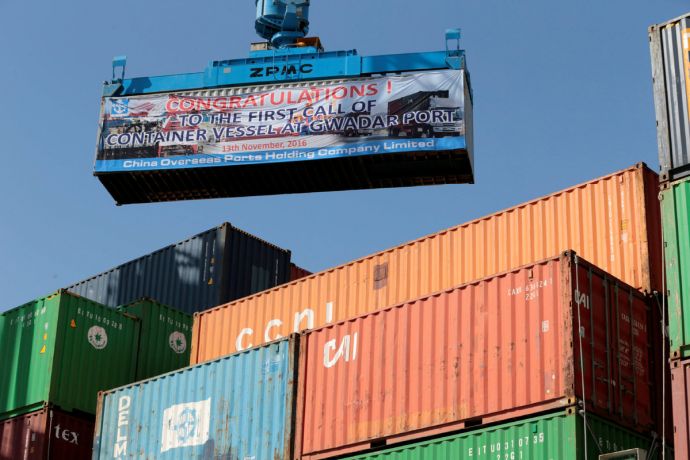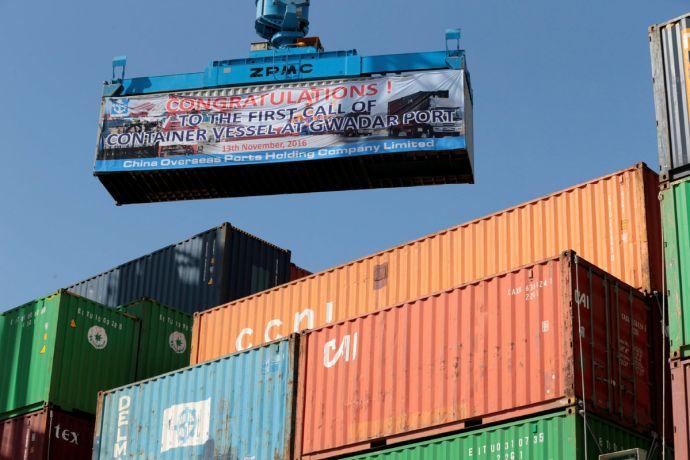
Beijing -- The attack on the Chinese consulate in Karachi last month will only strengthen the resolve of China and Pakistan to take their relations and the China-Pakistan Economic Corridor to new heights, a senior Pakistani official said.
Khusro Bakhtiar, minister for planning, development and reforms of Pakistan, said the incident's perpetrators obviously "don't want the CPEC to grow".
"But such cowardly attempts only further strengthen our resolve to take our bilateral relations and the CPEC to new heights," Bakhtiar said on Wednesday. He is in Beijing to head the Pakistani delegation to the eighth Joint Cooperation Committee meeting of the CPEC, which started on Thursday.
The corridor, part of the Belt and Road Initiative, first proposed by the two countries' leaders five years ago, includes a variety of infrastructure projects such as roads, railways and oil and gas pipelines from Pakistan's Gwadar Port to Kashgar in the Xinjiang Uygur autonomous region.
Bakhtiar said that ensuring the safety of Chinese nationals and businesses is one of the priorities of Pakistan, and the nation's special security division can be further reinforced.
He reaffirmed the full commitment of Pakistan to the BRI, of which the CPEC is a signature project. He said the two countries need to broaden the corridor's base and hasten its pace.
The two countries have maintained frequent high-level exchanges since Imran Khan became Pakistan's prime minister in August.
One of the major consensuses reached between the two countries is adding more areas, such as social and economic development and agricultural and industrial sectors, to the CPEC agreement.
"We have seen a lot of milestones achieved in early harvest projects, especially in the energy sector," he said.
Bakhtiar said that Chinese companies' investments have helped Pakistan solve the problem of energy deficiencies.
"People across Pakistan, including policymakers, value the role and significant contribution that the CPEC has made toward the present and future economic growth of the country," he said.
One focus of the Pakistani delegation will be on increasing bilateral cooperation in the agricultural sector and poverty alleviation in Pakistan under the framework of CPEC, he said.
"It will have far-reaching impacts, especially in the less developed areas of Pakistan," he said.
The delegation will also seek to hasten the progress of the special economic zones envisioned under the corridor.
He said the Pakistani authority is hoping one of the nine special economic zones under the CPEC will start its commercial operation by the first quarter of 2019.
The two sides also are exploring the possibility of signing an industrial cooperation agreement to foster the growth of the manufacturing sector in Pakistan, he said.
Source: China Daily




 A single purchase
A single purchase









